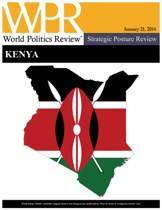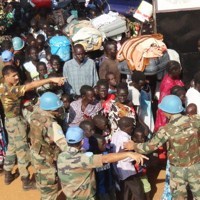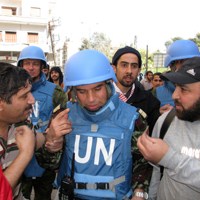
After winning Kenya’s March 2013 presidential election, President Uhuru Kenyatta inherited the difficult task of leading East Africa’s most significant diplomatic and economic actor while simultaneously awaiting trial at the International Criminal Court (ICC). The charges, for alleged crimes against humanity, stemmed from Kenya’s disputed 2007 elections. Given Kenya’s historically strong ties to the West, the charges against Kenyatta and his deputy president, William Ruto, forced the new Jubilee coalition government onto an immediate diplomatic tightrope—one defined by an all-consuming campaign to weaken international support for the trials, while maintaining enough continuity of engagement with the West to prevent international […]




